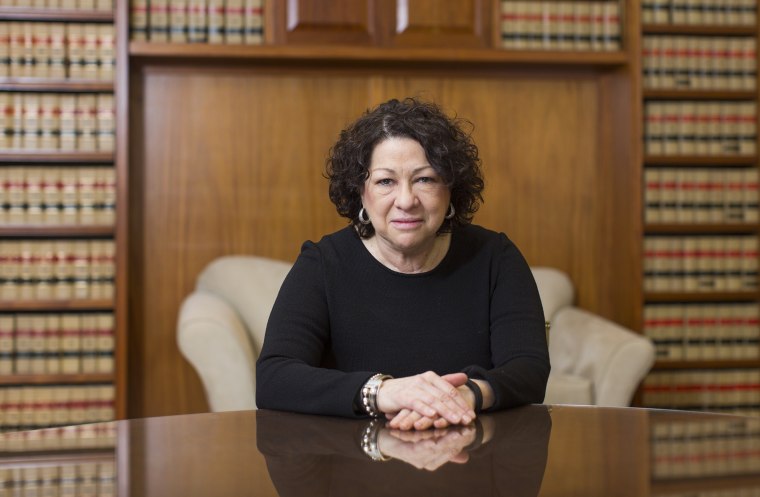In a Supreme Court ruling just before midnight on Thanksgiving eve, Supreme Court Justice Sonia Sotomayor penned another of her fiery dissents — this time warning, in her view, of the dangers of the Court’s majority position on New York state’s Covid-19 restrictions.
The high court, in a 5-4 vote, blocked restrictions on religious services that Governor Andrew Cuomo had introduced to fight the spread of the coronavirus. The majority found that Cuomo’s restrictions violated the First Amendment’s protection of free exercise of religion. These restrictions specified that, depending on infection rates, the number of worshippers at religious services could be limited. Justice Neil Gorsuch concurred, writing, in effect, that it was unconstitutional to have laws regulating churches and synagogues while allowing liquor stores and bike shops to reopen.
Sotomayor, the nation's only Latina Supreme Court Justice and a native New Yorker, was not having it.
“Free religious exercise is one of our most treasured and jealously guarded constitutional rights. States may not discriminate against religious institutions, even when faced with a crisis as deadly as this one,” she wrote. “But those restrictions are not at stake today.”
In her dissent, in which she was joined by Justice Elena Kagan, she wrote: “Justices of this Court play a deadly game in second guessing the expert judgment of health officials about the environments in which a contagious virus, now infecting a million Americans each week, spreads most easily.” The Court had rejected challenges to similar measures in California and Nevada earlier this year, and she saw no reason for its apparent change of heart. The Court’s ruling, she noted, “will only exacerbate the Nation’s suffering.”
As the Court has increasingly shifted to the right, Sotomayor has emerged as its strong progressive voice. She has taken aim at what she saw as improper actions by the Trump administration, as well as what she considered improper behavior by the Court itself.
In her dissent in the Covid-19 restrictions case, Roman Catholic Diocese of Brooklyn v. Andrew M. Cuomo, Sotomayor took aim at Gorsuch’s comparison of New York’s treatment of religious institutions to liquor stores and bike shops. In the latter venues, she reasoned, people do not gather inside for more than an hour to sing and speak to one another.
Sotomayor brushed aside allegations that Governor Cuomo had made anti-religious statements, which would mean that his coronavirus orders be subjected to strict scrutiny by the Court. Just a few years ago, she pointed out, the Court declined to consider President Trump’s remarks and comments in its evaluation of the so-called “Muslim Ban,” limiting immigration from Muslim-majority countries. In her opinion in the DACA case earlier this year, she likewise noted that the majority did not give weight to Trump’s comments (about Mexicans) in that decision, either.
The Court’s decision in the Covid-19 restrictions case is important because it holds broad implications for other states and localities that may try to limit attendance at large events, like religious services. Sotomayor’s dissent can be viewed as a strong rebuttal to the Court’s conservative majority; in a footnote, she mentioned that “ironically” the plaintiff diocese is no longer subject to Cuomo’s numerical caps on attendance, “due to the success of New York’s public health measures.”
The coronavirus has killed over 260,000 Americans since the end of February. New York, New Jersey, California, Texas, and Florida have seen the most deaths — and these are all states with significant Latino populations.
Sotomayor made it clear that she considered Cuomo’s Covid-19 actions as reasonable and legally sound.
“The Constitution does not forbid States from responding to public health crises through regulations that treat religious institutions equally or more favorably than comparable secular institutions," wrote Sotomayor, "particularly when these regulations save lives.”
Follow NBC Latino on Facebook, Twitter and Instagram.


